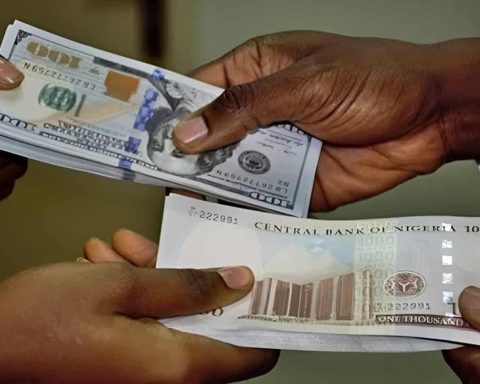Foreign Portfolio Investment (FPI) has continued to dominate foreign inflows into Nigeria’s economy. It rose by 133.6 per cent month-on-month to $2.73 billion in June 2025.
This is considered the highest level in more than two years.
Join our WhatsApp ChannelFPIs constituted 56.3 per cent of all foreign exchange receipts in June, according to data from the FMDQ Securities and Exchange platform.
The increase strengthened Nigeria’s appeal to foreign investors in the face of improving global financial conditions, restored local policy credibility, and helped contain weaknesses in other segments.
Analysts attribute the surge to growing investor confidence in Nigeria’s reform drive, improved FX market transparency, and attractive yields on short-term instruments.
Foreign portfolio investments into Nigeria spiked to $8.05 billion in the first half (H1) of 2025, nearly matching the total inflows for all of 2024 ($8.53 billion), CardinalStone Partners Limited said in its mid-year outlook released recently.
Analysts at the Lagos-based financial services firm project that the FPI inflows could reach $16.08 billion by the end of the year, marking a historic high.
According to the company’s report, the Central Bank of Nigeria (CBN) has kept its policy rate steady, which suggests that the surge in foreign inflows is being driven by alluring carry-trade opportunities.
READ ALSO: Economic Development And Policy Impacts
In its quest to tackle inflation, the CBN has maintained a tight monetary policy, keeping the benchmark interest rate at 27.5 per cent, creating attractive carry-trade opportunities for offshore investors.
Also, the Foreign exchange market reforms, such as the unification of exchange rates and clearance of a $7 billion FX backlog, improved transparency, easing repatriation of profits and reduced arbitrage gaps, have all boosted foreign capital inflows.
READ ALSO: Naira Stability: Analysts Project Nigeria’s FX Reserves To Hit $41bn By Year End
Foreign inflows fell significantly after Nigeria was excluded from the JP Morgan EM bond index, falling to an average of $0.65 billion between 2015 and 2023, compared to $1.83 billion inflows prior to the period.
“We see room for sustained FPI inflows, particularly as Nigeria prepares for a potential re-entry into the JP Morgan Bond Index, having been excluded for the past decade,” CardinalStone said.
Moving ahead, the firm said it expects “this renewed momentum in foreign investors’ activities to continue, supported by Nigeria’s relatively strong macro narrative and favourable positioning in the current global environment.”
Impact on Naira Stability
FPI inflows have contributed to the naira’s appreciation in recent times. The naira strengthened to ₦1,529.71 per dollar by end-June 2025 (H1) at the official market. The local currency gained ₦90 (5.7 per cent), closing at ₦1,570 per dollar, narrowing the spread with the official rate.
The inflows powered CBN’s strategic interventions (e.g., $580 million injections in the FX market in May 2025), which helped in reducing speculative demand, further stabilizing the FX market.
The FPI surge reflects growing confidence in Nigeria’s macroeconomic reforms, but sustaining this momentum requires addressing structural bottlenecks (such as power failure, oil sector opacity) and diversifying revenue sources beyond oil. With continued policy discipline, Nigeria could achieve long-term FX stability and investor-friendly growth.











